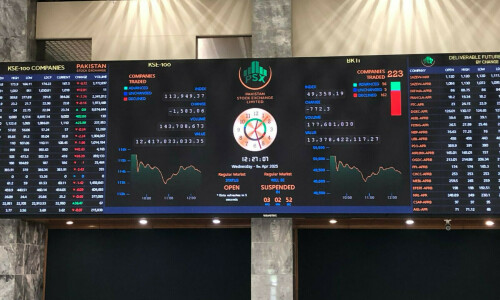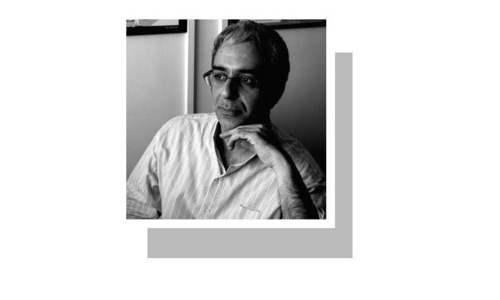WHILE lawyers occupy centre stage in op-ed sections and appear on late-night TV shows dissecting the legalese of politically motivated verdicts and constitutional amendments, they have — ironically and perhaps even meekly — overlooked a fundamental transformation within their own ranks: the rapid and incendiary polarisation of bar politics.
Over the weekend, the Lahore High Court Bar Association conducted its elections drawing lawyers from all across Punjab to cast their votes. Similarly, a little over a month ago, the Lahore bar saw its own electoral contest.
Styling themselves as the saviours of the bar, with each with their own unique rhetoric, the candidates shared one glaring commonality: they buttressed, bolstered and toed the party (read: political party) line, making it their primary line of defence — and offence — against their rivals. By winning both elections, one group reified its profound conviction that its chosen course of action was indeed right.
Well, it may seem so — for now. However, in a 70-plus years Pakistan, we can’t afford to count years; we must count days, discounting each loss against our victories, learning from them, and pressing forward. Brashly politicising bar politics means lawyers no longer standing for the rule of law or what is right, but merely choosing a side.
The concerns of young lawyers go unheard.
Take, for instance, the 26th Amendment to the Constitution. Would history have taken the same course had lawyers not been so divided, polarised, and debilitated? Let me try and put this in a little more perspective: would the lawyers’ movement have been a success if it had been bedevilled by the same internal divisions that we are witnessing today? Would lawyers have been able to present the most effective mode of resistance against a martial law administrator?
The consequences of these rancorous divisions are already plain for everyone to see. Last month, the Supreme Court Bar Association secretary was suspended by the executive committee — only for the secretary to claim that no provision for such a suspension existed in the rules. Hardly surprising, really — after all, both parties in this case hail from different legal-political groups albeit mere extensions of their respective political parties.
But perhaps the group most at risk is young lawyers.
Young lawyers who were once expected to inherit the lodestone of constitutional guardianship now find themselves inheriting only divisions. Instead of upholding the rule of law, they are discovering that partisan fealty takes precedence. Even with the introduction of qualifying exams such as SEE-Law and GAT — along with talks of an additional Bar Vocational Course that must be completed before obtaining a licence — the influx of young lawyers remains huge every year. This renders them a formidable force in the election process.
But to what end?
While the bar fails, year after year, to equip young legal minds with the skills necessary to navigate this highly competitive profession, it succeeds in teaching them that a well-placed political alliance often outweighs legal acumen. Instead of fostering an understanding of objectivity in matters of law and the Constitution, or instilling an appreciation for the bar’s historic role as the first line of defence against constitutional subversion, young lawyers are conditioned to see everything through a loaded political lens.
And as if matters weren’t already bad enough, all of this unfolds without any representation for young lawyers in the actual running of the bar. Their concerns go unheard, and their recommendations remain unsaid, further amplifying the frustration and disillusionment eroding confidence in the pro-fession.
Let’s look at it from another lens.
Bar councils are statutory bodies established under the Legal Practitioners and Bar Councils Act of 1973, granting them the legal authority to license, discipline, and regulate lawyers. They are the closest thing we have to unions or a resistance front — one that could be unyielding and disciplined. This very strength is why the bar has historically achieved what it has.
It succeeded because bar councils once took pride in anointing themselves as the guardians of the Constitution, devoid of political leanings — supporting anyone who upheld the Constitution and opposing those who subverted it.
With such a legacy — and as the only proven and battle-tested platform for opposition — the bar must recognise that its responsibility extends exponentially beyond mere political manoeuvring. When the stakes transcend bar politics, when the Constitution is under siege and when civil liberties stand imperilled, the bar must once again prove itself as an unyielding sentinel of justice.
For when the bar falters, justice follows.
The writer is a lawyer.
Published in Dawn, February 27th, 2025











































